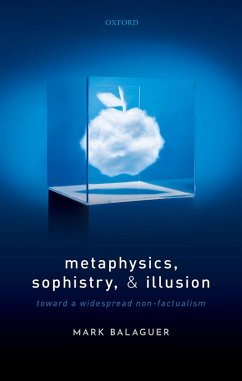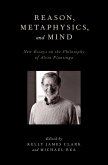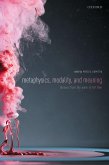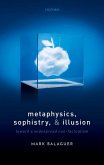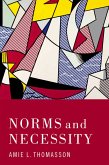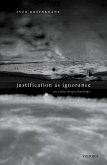Metaphysics, Sophistry, and Illusion does two things. First, it introduces a novel kind of non-factualist view, and argues that we should endorse views of this kind in connection with a wide class of metaphysical questions, most notably, the abstract-object question and the composite-object question. (More specifically, Mark Balaguer argues that there's no fact of the matter whether there are any such things as abstract objects or composite objects--or material objects of any other kind.) Second, Metaphysics, Sophistry, and Illusion explains how these non-factualist views fit into a general anti-metaphysical view called neo-positivism, and explains how we could argue that neo-positivism is true. Neo-positivism is the view that every metaphysical question decomposes into some subquestions--call them Q1, Q2, Q3, etc.--such that, for each of these subquestions, one of the following three anti-metaphysical views is true of it: non-factualism, or scientism, or metaphysically innocent modal-truth-ism. These three views can be defined (very roughly) as follows: non-factualism about a question Q is the view that there's no fact of the matter about the answer to Q. Scientism about Q is the view that Q is an ordinary empirical-scientific question about some contingent aspect of physical reality, and Q can't be settled with an a priori philosophical argument. And metaphysically innocent modal-truth-ism about Q is the view that Q asks about the truth value of a modal sentence that's metaphysically innocent in the sense that it doesn't say anything about reality and, if it's true, isn't made true by reality
Dieser Download kann aus rechtlichen Gründen nur mit Rechnungsadresse in A, B, BG, CY, CZ, D, DK, EW, E, FIN, F, GR, HR, H, IRL, I, LT, L, LR, M, NL, PL, P, R, S, SLO, SK ausgeliefert werden.

